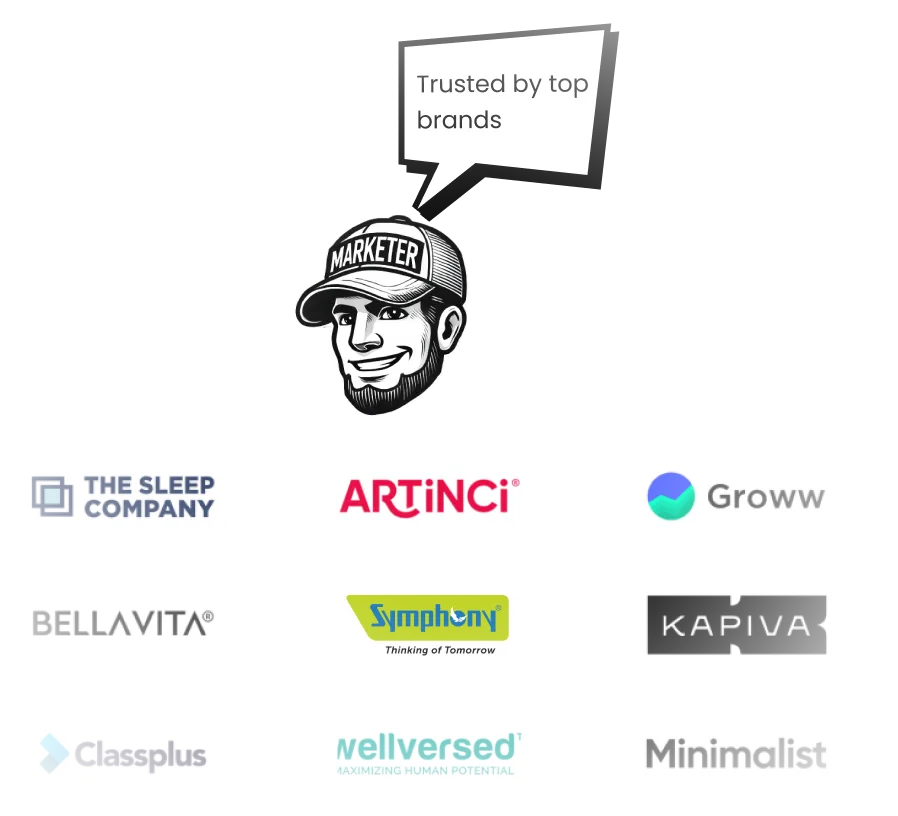Demand Generation is a Number-driven Role with an Art and Science to it


Demand generation is a number-driven role with an art and science to it
Highlights of the talk
- Points to focus on as a SaaS marketer
- Lead generation strategy for website
- Strategies to drive quality traffic to the website
- Components crucial to inbound marketing
What does your marketing funnel look like? Would you like to emphasize a few points or activities particularly for SaaS marketers that you feel they need to concentrate on?
When I think about a marketing funnel or how to build one, I think there's a couple of key attributes that need to be included within it to ensure success. So the first one is that the defining attributes of each stage and how the movement happens should be as clear as possible and as well defined as possible, so that you're moving as much objectively through the process as possible.
For example, we typically end up building that out if you work from the bottom up which is pretty clear for everyone. You have an opportunity stage, which actually is one of the most confusing ones. This is when you want to count something as being part of your pipeline. You typically go through some level of methodology, or there's many different versions of this, but it typically boils down to some level of “this is the right person” and then you want some level of qualification around that to define your opportunity.
Typically we have defined something like an SQL as being a demo. We have something around called an SEL, which means “sales engaged lead” focused on when a discovery is scheduled and then above that you would actually have what attracts the prospects that are starting to be worked on by your sales team. You’d call those sales accepted leads. Above that you typically have some level of automation qualified leads it's sometimes referred to as marketing qualified leads. I prefer to use the term "automation qualified leads" to divert it from the actual marketing team. I should take more of a comprehensive focus as a sales and marketing team to focus around what are the ones that automation is telling us that we should focus on first. So at a high level, that's kind of what my marketing funnel looks like.
I will add that there's one stage above automation qualified lead, which would typically be an inquiry which is just someone doing something, it could be my grandma downloading a white paper. It doesn't matter who they are. It's just a way of tracking that something happened at the top of the funnel.
What’s your lead nurturing strategy for the website?
I love to take the perspective of moving away from the marketing funnel necessary for lead nurturing and focus more on the buyer's journey. We just walked through what the marketing funnel looks like. When I think about the buyer's journey, it's less about the specific points that we track internally and more about the journey that the individual prospect takes. So you'd want to start from a perspective that they know nothing about your company and they know nothing about the problem that they might be facing.
Next there's awareness of the problem. There's interest in finding a solution for it. And then there's a decision stage when they're actually making a decision. So that at a high level is the framework I like to use. When you think about lead nurturing, oftentimes people tend to focus it specifically on email campaigns when you got someone's name and you want to move them to a further stage down the funnel.
The reason I like to look at this buyer's journey from the prospect standpoint is that your lead nurturing can really happen at any given point. You can go as far up to the top of the funnel trying to move someone from unaware to aware. For example, this podcast right now. Podcasts aren't always the easiest campaign to understand the ROI from, but you’d still do them because it's a way for you to generate awareness at the top of the funnel.
And you see a lot of great companies incorporating a podcast into the marketing specifically for awareness. With this you drive traffic to your website. The challenge you have with your website overall is that you build one website and expect it to resonate with every single one of your buyers. Especially, as companies have multiple products and different buyer personas, the idea of having one website for everyone just doesn't make sense.
Long term dividends of SEO
What is your major source of website traffic? How do you make it work? How do you prioritize things?
I think at a high level, you can make a distinction between earned media and paid media to your website and then comes what are the first areas you want to focus on specifically with a strategy around search engine optimization. It is a difficult channel to build but it's also the one that's probably gonna provide the highest ROI over the long-term for your business. So I always recommend investing heavily in that from the start to get your business off the ground and up and running.
What is your methodology to increase conversion rate?
I think if you're struggling with a website that's converting poorly, one of the first areas we wanna understand is just how is the different traffic to your website converting? Is it a specific channel driving that down? Are you bringing the wrong visitors to your website in the first place? So there's a number of tools out there that do allow you to help get a better understanding of who's coming to your website. That's a great place to start to understand how you increase the conversion rate.
It's great to start building out different audiences and different segments of your visitors to your site, and then creating more compelling information to them. For example, you often see on B2B sites, there's always this push to complete another form, book a demo, but most likely the largest audience coming to your website isn't necessarily ready for that.
However, you’d want to drive some level of engagement, but you don't necessarily need to push towards a lead capture as they might be afraid of sales falling, or they're just not ready for a demo. So, when you start to look at that information, you get a much better understanding of how you can adjust the content on your website to make sure that people are actually converting properly through your funnel.
If you had dynamic landing pages which showcases relevant content to not only for the particular segment of the audience, but for each and every visitor at every stage, will it help in nurturing those leads on the website?
Definitely. And the thing to keep in mind is that a website is probably one of the strongest parts of your overall funnel and one of your most important channels. You absolutely want to convert it, but keep in mind that on top of that, you also want to align the rest of your channels around that same content and that same audience segment, so that your website personalization isn't just one part of your overall mix in personalization. You want to make sure that buyer is experiencing that same message across all the channels that they interact with your business on.
Inbound marketing
According to you, what are the three important components in case of inbound marketing?
Understand your buyer personas' pain points and know really where they are coming from. What other resources are they looking at? It's very easy to go down a specific path of assuming who your buyer personas are without fully walking their footsteps. Have a really good understanding of the buyer persona. If I'm selling into a different market I'm less familiar with, one of the first things you have to do, if you're building out an inbound marketing strategy is you really almost have to understand what your buyers are actually trying to achieve.
Keyword and first party research
What is your strategy for keyword research? Any step-by-step methodology that you follow?
It's always great to start with keyword research tools and there's plenty of them out there. That’ll give you the same information that your competitors are most likely receiving as well. You really want to understand what your buyer personas are doing. There's a couple different ways that you can do that as an individual. So if you use some sort of revenue intelligence tool, you can listen to calls and actually hear what your prospects are saying when they're talking with your sales team. That's a great way to just understand what terminology they're using that could then influence your keyword research. There's also different ways of buying a lot of the information that's coming from those calls into a more easily digestible kind of knowledge sharing platform internally that can help you understand that information. So that's the second part of it.
I think those would be the two main areas. If you're building out a keyword research strategy, I'd start with a keyword research tool, but we particularly focus on your own first party research through your sales team.
Any blogs or resources on marketing or demand generation that you follow?
I'm always a fan of the content that Drift produces. Their CEO has a weekly newsletter as well. I'd highly recommend that. Also, there’s Gong and Metadata.io. Those are some of my favorites out there right now for following content marketing strategies.
Aligning individual’s goals with the team’s
What’s the most challenging aspect of managing a team?
As a manager, what I try to solve is identifying what the business needs and aligning that towards an individual's own passion. I never want to be in a position where I'm having to constantly drive someone's focus and initiative around a specific area. What I want to do through the hiring process is identify someone who's own individual passions align with what the business needs and that's working through with the business for a few years, or whatever is appropriate. They then achieve their own goals.
It’s quite challenging to find that alignment. It’s important to make sure that when someone wakes up in the morning, their feet touch the floor, they're excited to go do what they do because they want to do it.
Demand Generation- a blend of art and science
What’s your mantra for demand generation?
Demand generation is done properly with a blend of art and science, and that's the thing that interests me the most about marketing and demand generation— you can do it well in many different ways. There are many different practitioners out there that are interesting to watch who bring their own kind of artistic skill set to demand generation. But at the same time, it’s a highly numbers driven role that we have to focus on the pipeline.
So you're taking this very objective definition of some pipeline figure and getting to it in a more artistic manner. I think that it's just so cool to blend both sides of those and try and find where they come together and how they align to get to that number that drives business growth with science, psychology of the visitor and the psychology of your target persona.






.svg)


.avif)